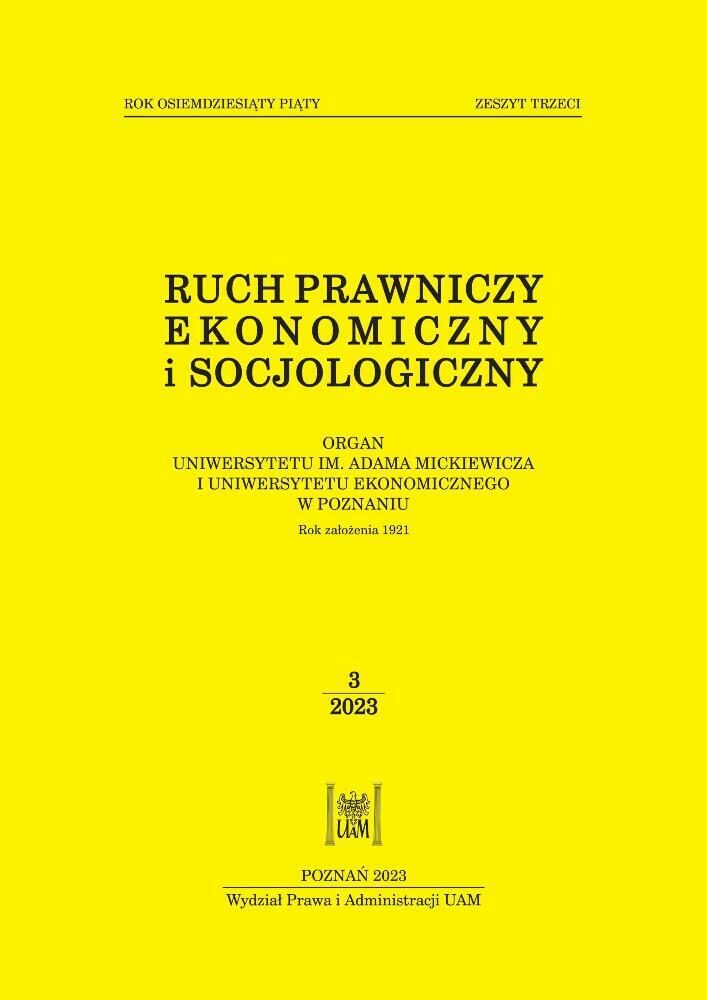Abstrakt
One of the contemporary challenges related to climate change and effectively managing raw materials is to reduce resource consumption and the negative environmental impact while simultaneously increasing the economy’s competitiveness. This requires that business entities change priorities and move to a sustainable relationship focused on ecological, economic and social well-being. Due to the transnational and global nature of the climate and the environment, actions in this area should be carried out at a supranational level. In European Union (EU) countries, successive directives are implemented regarding environmental changes and the taxonomy for non-financial reporting. This forces public companies, as large public interest units, to produce adequate quality data reporting in the ESG (Environmental, Social and Governance) area, including the environmental (E) indicator and its components. The article’s purpose is to make a comparative assessment of the current situation and to consider the prospects for environmental data disclosure by public companies listed on the regulated markets of the EU, with particular emphasis on energy consumption, water, waste production, and CO2 emissions. The Refinitiv database was used to test the quality of the environmental indicators. Public companies listed on the leading stock markets in the 27 EU Member States were included. The research period covers 2012–2021. We focus on checking how many companies report environmental data in any given year, and those that present them for at least one year, or for three, five, or ten years. The findings support the clear advantage of the quality of environmental data disclosure in the ‘old’ EU Member States (which joined before 2004) compared to the ‘new’ EU Member States. However, reporting on key environmental issues (water and energy consumption, waste production, and carbon dioxide) is very incomplete.
Bibliografia
Adams, C., Larrinaga-González, C. (2007). Engaging with organisations in pursuit of improved sustainability accounting and performance. Accounting, Auditing & Accountability Journal 20(3): 333–355. DOI: https://doi.org/10.1108/09513570710748535
Amariei, C. (2019). Sustainability in practice: ratings, research and proprietary models. “ECMI Policy Brief” 26, European Capital Markets Institute. Brussels, https://www.ecmi.eu/sites/default/files/ecmi_pb_no_26_cosmina_amariei.pdf [accessed on 22 February 2023]. DOI: https://doi.org/10.2139/ssrn.3410353
Amel-Zadeh, A., Serafeim, G. (2018). Why and how investors use ESG information: evidence from a global survey. Financial Analysts Journal 74(3): 87–103. DOI: https://doi.org/10.2469/faj.v74.n3.2
Avetisyan, E., Hockerts, K. (2017). The consolidation of the ESG rating industry as an enactment of institutional retrogression. Business Strategy and the Environment 26(13): 316–330. DOI: https://doi.org/10.1002/bse.1919
Boffo, R., Marshall, C., Patalano, R. (2020). ESG Investing: Environmental Pillar Scoring and Reporting. Paris: OECD. http://www.oecd.org/finance/esg-investing-environmental-pillar-scoring-and-reporting.pdf [accessed 22 February 2023].
Chung, J., Cho, C.H. (2018). Current trends within social and environmental accounting research: a literature review. Accounting Perspectives 17(2): 207–239. DOI: https://doi.org/10.1111/1911-3838.12171
de Villiers, C., Hsiao, P-C.K., Maroun, W. (2017). Developing a conceptual model of influences around integrated reporting, new insights, and directions for future research. Meditari Accountancy Research 25(4): 450–460. DOI: https://doi.org/10.1108/MEDAR-07-2017-0183
Escrig-Olmedo, E., Muñoz-Torres, M.J., Fernández-Izquierdo, M.Á. (2010). Socially responsible investing: sustainability indices, ESG rating and information provider agencies. International Journal of Sustainable Economy 2(4): 442–461. DOI: https://doi.org/10.1504/IJSE.2010.035490
Fetting, C. (2020). The European Green Deal. ESDN Report. December 2020. Vienna: ESDN Office.
Marrone, M., Linnenluecke, M.K., Richardson, G., Smith, T. (2020). Trends in environmental accounting research within and outside of the accounting discipline. Accounting, Auditing & Accountability Journal 33(8): 2167–2193. DOI: https://doi.org/10.1108/AAAJ-03-2020-4457
Murphy, L., Hogan, R. (2016). Financial reporting of nonfinancial information: The role of the auditor. Journal of Corporate Accounting & Finance 28(1): 42–49. DOI: https://doi.org/10.1002/jcaf.22218
Refinitiv (2022). Environmental, Social and Governance (ESG) Scores from Refinitiv 2022. Available online: https://www.refinitiv.com/en/sustainable-finance/esg-scores [accessed 22 February 2023].
Romolini, A., Fissi, S., Gori, E. (2017). Exploring integrated reporting research: results and perspectives. International Journal of Accounting and Financial Reporting 7(1): 32–59. DOI: https://doi.org/10.5296/ijafr.v7i1.10630
Rosicki, R. (2010). Międzynarodowe i europejskie koncepcje zrównoważonego rozwoju. Przegląd Naukowo-Metodyczny 4: 44–56.
Licencja
Prawa autorskie (c) 2023 WPiA UAM

Utwór dostępny jest na licencji Creative Commons Uznanie autorstwa 4.0 Międzynarodowe.





